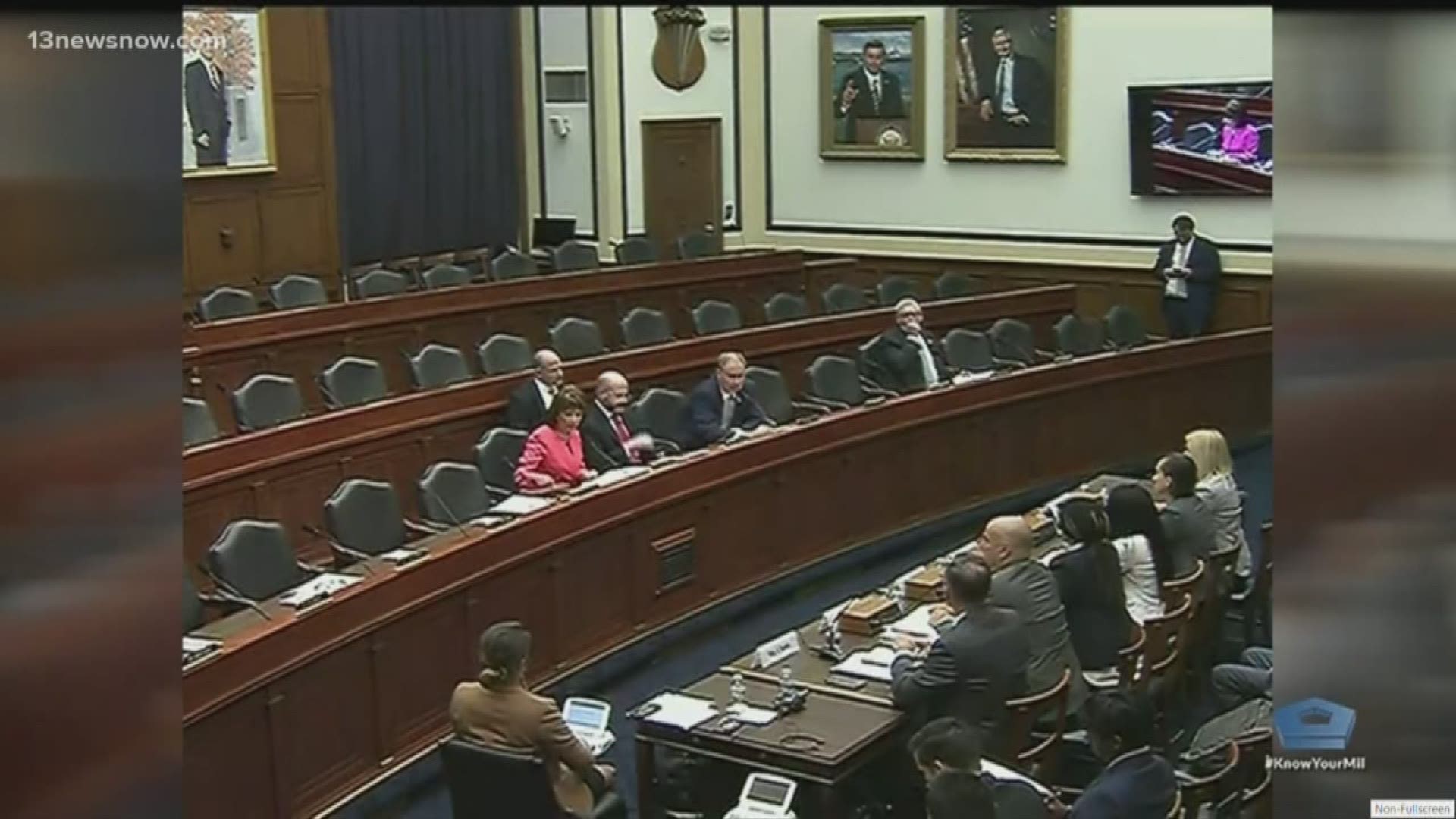WASHINGTON — On Wednesday, the House Armed Services Subcommittee on Military Personnel heard from victims of military domestic violence.
They included Kate Ranta, who found justice in the civilian -- not military -- system. But it came only after her violent ex-husband, who was allowed to go free by the Air Force, shot her and her father.
"All of this was avoidable," she said. "I hold his command responsible. They knew he was dangerous but instead, they chose to not do anything about it."
Others told similar tales of horror, and of the military doing nothing.
"He constantly threatened me, to break my neck and bust my teeth out," said Major Leah Olszewski, who is still on the run from a violent abuser. She said Air Force officials at every level refused to help her, despite knowing of past incidents.
"There were five physical assaults, including strangulation," she added.
Rohini Hughes said she and her son were verbally and physically abused by her husband, who as a JAG used his knowledge of the system against her.
"This is a black eye on our military," she said. "It is the invisible scars that forever haunt me and my children."
Committee chairwoman Jackie Speier (D-California) said the Defense Department must learn to believe women and take action based on their claims and evidence.
"I believe that the military takes this problem seriously, but it's clear that leadership needs to address this threat with renewed urgency," she said. "Commanders, at every level, need to make combating domestic violence a personal priority."
An analysis of more than 200 cases of domestic violence at eight military installations released in April determined that commanders and law enforcement personnel are not following their own rules when investigating and handling these cases and their victims.
Of 219 cases studied, 209 did not comply with Defense Department policies.

